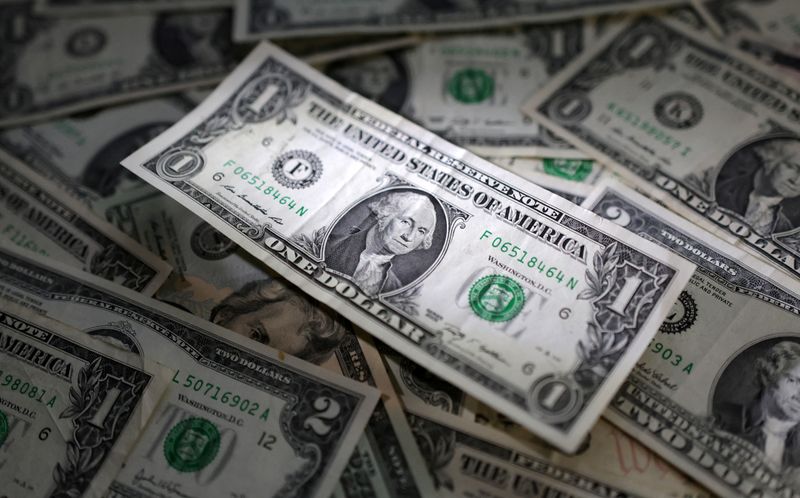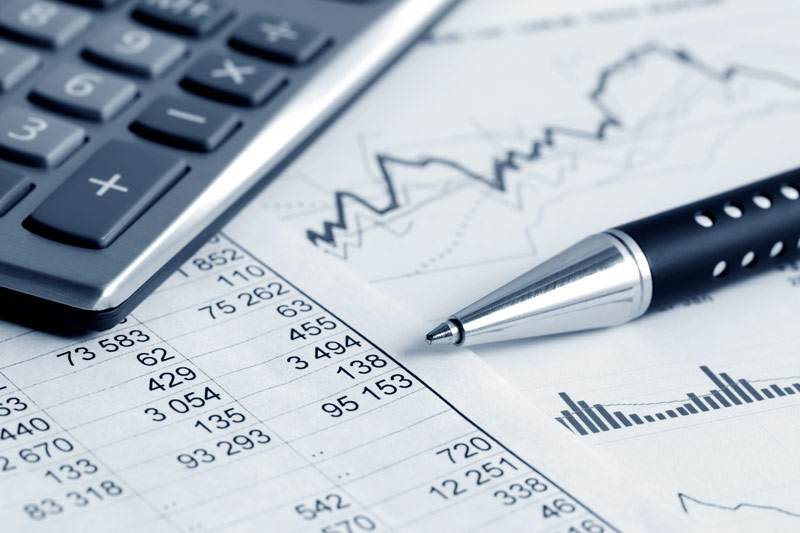By Hannah Lang
NEW YORK (Reuters) -The U.S. dollar rose on Thursday after a hotter than expected inflation readout while the euro traded a touch lower following the European Central Bank’s decision to cut interest rates for the fourth time this year.
A Labor Department report on Thursday showed producer prices rose 0.4% on a monthly basis in November, compared with estimates of a 0.2% rise as per economists polled by Reuters.
The dollar index, which measures the currency against a basket of six others, was last up 0.375% at 106.95, a day after a separate U.S. inflation reading cemented bets for a rate cut from the Federal Reserve next week.
Markets are now almost fully pricing a 25 basis point cut at the Fed’s Dec. 17-18 meeting, compared with about a 78% chance a week ago, the CME FedWatch tool showed.Â
“Although the Fed is seen cutting its benchmark by a quarter point, moves in the last 24 hours — from the Bank of Canada, Swiss National Bank, and European Central Bank — have ensured that cross-currency rate differentials will remain wide relative to the U.S., maintaining the dollar’s position in relative terms,” said Karl Schamotta, chief market strategist at Corpay, in an note.
The ECB on Thursday cut interest rates by 25 basis points and kept the door open to further easing ahead as inflation closes in on its goal and the economy remains weak.
The euro was last down 0.2% against the dollar at $1.0473.
The Swiss franc was up against the dollar after the Swiss National Bank opted for a 50 basis point interest rate cut. A majority of economists surveyed by Reuters had expected a smaller 25 basis point move.
The dollar was up 0.78% at 0.89135 francs.
“There will be some headwinds in the near term,” said Kirstine Kundby-Nielsen, FX research analyst at Danske Bank (CSE:DANSKE), about the Swiss franc after the rate cut.
“But more broadly I still think euro-Swiss will go lower, the franc will strengthen, if we look at the next couple of months ahead as I don’t think the picture is very rosy in the euro area.”
The dollar was slightly higher at 152.525 yen, after hitting a two-week high of 152.845 yen the previous day as market players trimmed back bets for a rate hike in Japan next week.
Reuters reported on Thursday that the BOJ is leaning toward keeping rates steady, as policymakers prefer to spend more time scrutinising overseas risks and clues on next year’s wage outlook.
But with markets now eyeing a rate hike just a month later in January, the shift has not really become a big driver for investors to pile into the dollar against the yen, said Akira Moroga, chief market strategist at Aozora Bank.
“There were expectations for December, so dollar/yen has been rising from around 150 yen to about the 200-day average,” he said.
The Australian dollar was down 0.06% at $0.6365, pulling further away from the just over one-year low of $0.63370 touched on Wednesday.
Australia’s jobless rate posted a shock decline to an eight-month low in November, prompting markets to scale back bets for easing from the Reserve Bank of Australia in February.
The kiwi was last down 0.25% at $0.577, after hitting its lowest since Nov. 2022 at $0.57625 in the previous session.

The yuan was last trading around 7.2772 per dollar in offshore trading.
China pledged on Thursday to increase its budget deficit, issue more debt and loosen monetary policy to maintain stable economic growth.


